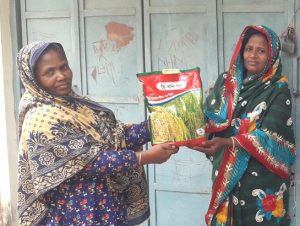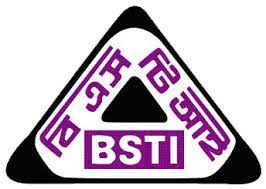Danielle Nierenberg
To begin this newsletter, I want to make sure that everyone reading this in the United States has information about how to register to vote and how to request a mail-in ballot. No matter your political affiliation, voting is not just a right, but a responsibility. For more information, you can visit vote.gov and vote.org. For resources on voting by mail, visit the U.S. Vote Foundation or the Election Management Resources from the U.S. Election Assistance Committee. The upcoming U.S. election is critical because the urgency of the issues we face is greater than ever before. More than two dozen scientists agree that “climate disruption is now locked in.” The wildfires on the West Coast, stronger slow-moving hurricanes along the Gulf, and record heatwaves are a harbinger of what’s to come.
Our food production and consumption practices need to change in response. In the U.S. alone, emissions from food waste are equivalent to 37 million cars’ worth of greenhouse gases, according to the World Wildlife Fund. Instead of continuing this cycle of production and destruction, we have to think about wasting less and using our food resources more efficiently to help keep our planet healthy.
This is the idea behind upcycling food—taking quality ingredients that would otherwise be wasted and turning them into nutritious and ecologically friendly snacks, beverages, and meals. The food wasted in a year contains enough calories to feed every undernourished person on Earth, according to the WWF. Upcycling is a realistic way to help bridge that gap, which is why the recently formed Upcycled Food Association has brought together over 90 upcycling brands to advocate for standards and policies that can help reduce food waste.
In honour of International Day of Awareness of Food Loss and Waste next Tuesday, Sept. 29, Food Tank is spotlighting 12 companies and nonprofits giving a second life to wasted food through upcycling: Aqua Botanical, Australia; KROMKOMMER, The Netherlands; Matriark Foods, United States; NETZRO, United States; Pure Plus+, United States; RISE + WIN Brewing Co., Japan; Rubies in the Rubble, United Kingdom; Sweet Benin, West Africa; Toast Ale, United Kingdom; Treasure8, United States; Upcycled Grain Project, New Zealand; and Wize Monkey, Canada.
Contributing author: Sean Taylor
Entrepreneurs are taking on food waste across the world in some truly creative ways—turning what many consider garbage into delicious—and nutritious—products.
Their efforts are part of a growing trend to battle one of the world’s most pressing environmental and agricultural problems. According to the U.N. Food and Agriculture Organization, 1.3 billion tons of food is wasted annually across the globe–if food waste were a country it would be the third largest emitter of greenhouse gases.
But companies and nonprofit organizations around the world are working to reduce food waste by upcycling food and creating high quality, nutritive products.
As defined by the Upcycled Food Association (UFA), upcycled foods “use ingredients that otherwise would not have gone to human consumption, are procured and produced using verifiable supply chains, and have a positive impact on the environment.” UFA is working to reduce food waste while improving the environment through research, networking, and policy advocacy.

“We can take these very large waste streams and we can upcycle them into safe, tasty, healthy products and ingredients that can work at large scale distribution,” says Timothy Childs, co-founder of Treasure8.
Food Tank is highlighting 12 companies and nonprofit organizations that are tackling waste through upcycled food around the world. With their products, they hope to help create a more sustainable food system.
1. Aqua Botanical, Australia
Developed by chemical engineer Dr. Bruce Kambouris in 2016, Aqua Botanical is working to create drinking water to combat water scarcity, one of the biggest problems in the world. The company extracts, filters, and mineralizes the water used from the production of juice concentrate. They are the recipient of the 2019 Beverage of the Year award at the Australian Food and Beverage Industry Awards.
2. KROMKOMMER, The Netherlands
Kromkommer was founded in 2012 to rescue imperfect produce that would otherwise be thrown away. In 2014, the company launched Wonky Veggie Soup, a line of soups created from rescued produce. One year later, they opened their Wonky Vegetable and Fruit store to sell imperfect produce. Kromkommer was the recipient of the Mansholt Business Award for Sustainable Entrepreneurship in 2018.
3. Matriark Foods, United States
Founded by former Sylvia Center Executive Director Anna Hammond in 2018, Matriark Foods captures surplus produce from farms and processes it into soup and sauce bases. They aim to supply health vegetable products to serve schools, hospitals, and food banks to supply healthy vegetable products. This year, the organization was awarded the ReFED COVID-19 Food Waste Solution grant to help feed people in need while reducing food waste.
4. NETZRO, United States
Created in 2014 as an upcycled ingredient company, NETZRO works with large and small-scale farmers to reharvest food byproducts and develop new innovative ingredients. Some projects include upcycling egg shells for calcium and spent grain for fibre and protein. The company is led by CEO Sue Marshall who is also a founding member of the Upcycled Food Association.
5. Pure Plus+, United States
Pure Plus+ turns imperfect fruits and vegetables into a powdered sugar substitute that can be integrated into food and beverage products. The powder can be found in their first product, Faves Candy. Their goal is to divert fruit and vegetable waste to reduce the environmental impact and cost of food waste. The organization was selected as a finalist in the consumer technology category at the 12th annual SXSW Pitch.
6. RISE + WIN Brewing Co., Japan
Using scraps from Yuko citrus peels and returnable bottles, RISE + WIN Brewing Co. is upcycling products in every step of the brewing process. The spent grain produced in the process of brewing, for example, is used to make granola and sweets sold at their general store. In an effort to recycle whenever possible, their storefront is built from recycled wood, glass bottle chandeliers, and utilizes uniforms made from recycled clothing.
7. Rubies in the Rubble, United Kingdom
Jenny Costa from London, England created Rubies in the Rubble in 2012 with the goal to make condiments out of rejected food products. Rubies also make mayonnaise with aquafaba, a chickpea liquid alternative to eggs that is usually thrown out. They report that they have saved upwards of 135,000 kg of fruits and vegetables since their inception. The organization won a European-wide social enterprise competition run by the U.S. ice cream company Ben & Jerry’s.
8. Sweet Benin, West Africa
Sweet Benin is working with TechnoSevre to create cashew apple juice. Only ten percent of the 127,005,864 kg of cashew apples are processed in Benin every year, contributing to massive amounts of food waste. In 2018, the company produced 180,000 bottles of cashew apple juice and is working to help cashew farmers supplement their off-season income.
9. Toast Ale, United Kingdom
Founder of Toast Ale and author of the Waste: Uncovering the Global Food Scandal, Tristram Stuart is working to reduce the 24 million slices of bread that goes to waste every day in the United Kingdom. To do this, they use donated surplus bread to replace one-third of the malted barley used in their beer brewing process. The organization recently won the SME of the Year award at the 2020 Edie Sustainability Leaders Awards.
10. Treasure8, United States
Founded in 2011 by food tech entrepreneur Timothy Childs and his partner Inessa Childs, Treasure8 is a regenerative food systems company working to solve food insecurity by reducing global food waste. The company aims to divert food waste from landfills and create nutrient-rich food products and ingredients. Treasure8 is a 2020 grant recipient of the ReFED COVID-19 Food Waste Solutions Fund.
11. Upcycled Grain Project, New Zealand
The Upcycled Grain Project utilizes grain from brewers around New Zealand to create health-focused snack foods. Started in 2020 by Rutherford & Meyer, a fruit paste producer, the project is highlighting ways to use 100 percent natural ingredients while increasing sustainably produced products in stores.
12. Wize Monkey, Canada
After travelling to Nicaragua and meeting their coffee growing partner Armando Iglesias in 2013, Max Rivest and Arnaud Petitvallet launched Wize Monkey. The organization works to help farmers sustain a year-round income by using leaves of the arabica coffee plant, often neglected, to make tea. In 2017, the organization won Best Mission-Based Product at World’s Largest Natural Products Expo’s NEXTY awards.
Over the past week, I’ve been watching with horror as farmworkers on the U.S. West Coast face a seemingly impossible choice: go to work during a global pandemic with wildfires raging perilously close, or stay home safe without pay. The wildfires are just one more threat to workers’ well-being—and like this particularly devastating Atlantic hurricane season and the Australian bush fires late last year and into 2020, they are made worse by climate change.
Monday’s episode of Food Talk with Dani Nierenberg explored the labour implications of the dual health crises of COVID-19 and dangerous air quality due to fires. You can hear conversations with Teresa Romero of United Farm Workers, Baldemar Velasquez of the Farm Labor Organizing Committee, and Suzanne Adely and Sonia Singh of the Food Chain Workers Alliance. We’ll have another new episode of Food Talk tomorrow—subscribe right away to hear it first!
As we continue to think about the urgency of finding solutions to the climate crisis within the food system, what sectors do you think are underexplored? What questions are not being asked—and to whom should we ask them? Show me the view from your corner of the world by sending me a note or voice memo at danielle@foodtank.com, and I’ll ask experts on future episodes of Food Talk.
(Danielle Nierenberg is President, Food Tank. She can be contacted at danielle@foodtank.com)




